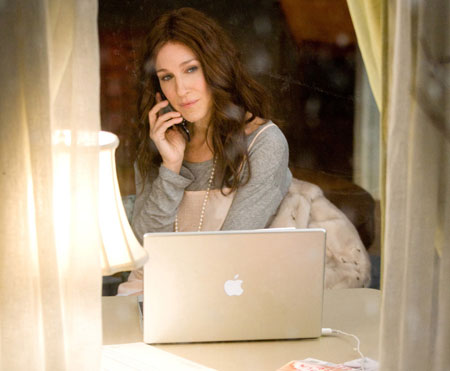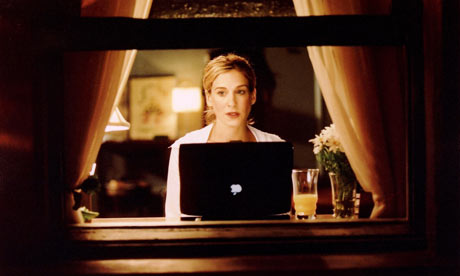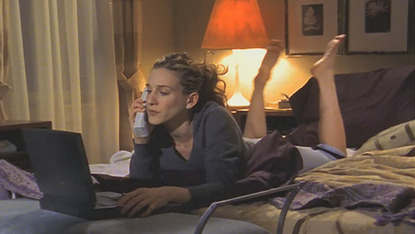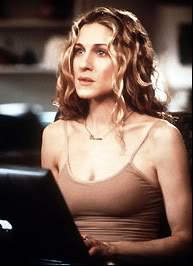"Look at that, Mr. White, it's a TV show!" "Shut up, Jesse."
I dreamt last night that I was Walter White. Walt is not a happy person to be at this point in Breaking Bad , and my unwaking self endured the full brunt of his fear. I was Walt, hat and beard and panicky, sinister cleverness and all, racing cross-country in hiding, dodging the police by just a few steps, wondering if I had enough bullets left to settle my problems or if I would have to figure out a way to buy more without being recognized. I mention this not just to brag about how exciting my dreams are—and they are fabulous—but to point out that Breaking Bad has become embedded not just in our collective unconscious, but in my private one too. So why don't we just shut up about it?
This is the best moment in history to be making television, and the worst to talk about it. Each week, tens of thousands of words are churned out about the hot TV topic of the moment—whether it's Breaking Bad or Mad Men or last season's hit drama Complaining About Mad Men —in recaps, podcasts, think pieces, and commentary shows produced by the networks themselves. Each moment of the show is picked over, retold, argued about and pondered, again and again until, by the time "Last Week On Breaking Bad " rolls around, the previous show has grown stale in our mouths. It is the single greatest act of collective, instantaneous criticism that has ever happened, and I think it's too much for one TV show to bear.
Breaking Bad is a crime drama. This is my literary turf. I think crime dramas have endless appeal, both for their comforting repetitiveness and for the art that comes from exploiting that repetition, but I've also found that writing seriously about them is not always a good idea. In college I wrote a paper about The Killer Inside Me , Jim Thompson's most literary novels, and one of his best. Despite that book's surprising amount of literary merit, though, I found it was a tough paper to get through. Stories of suspense do not demand much intellectual underpinning, which is why I like them. But when a novel's foundation is 90% plot, the critical structure you can build on it can only get so high before it collapses, and your teacher thinks you an idiot.
So, the best way to appreciate crime is to read it, muse on it, and let it go. Suspense television is the same way. The plotting in Breaking Bad is intricate and brilliant, but great plotting is rarely more than a clever trick. Delving into it for hundreds or thousands of words at a time—something practiced by traffic-hungry publications who should know better—is the critical equivalent of explaining a joke. The trolls who haunt the comment sections of these godforsaken bits of writing are even more misguided. Take the top comment on this week's Vulture recap by Matt Zoller Seitz, the gold standard in overly literal recaps. From Jake_M:
I’d like to believe that the opening sequence for episode 5.09, skaters in empty pool, the opening for the final eight episodes, is important. There are 4 persons at the pool. Two skaters performing/playing, one person videotaping the performance, and one person sitting on the edge of the empty pool, watching the performance.
What if this is a sketch of the defining moment in Walts tragedy as he sees it. That he was reduced to be a spectator in every way to the succes of Gretchen and Elliott. That they got the succes, happiness and attention he was cheated for and believed he deserved. That their wrongdoing, in Walts mind, propelled him into all these catastrofic events in life. Then it seems probable that the ricin he is collecting is intended for G and E.
"I'd like to believe ___________ is important" is the watchword for all those who demand too much from their TV. Of course we want to believe it's important, because otherwise, why did we waste so many hours watching it, thinking about it, dreaming about it? But TV is better when it isn't weighed down with the importance of being the only healthy area of American mass culture. Suspense shows are mostly plot, and everything else—bits of great acting, characterization, and directing—are morsels to be savored, and savored quietly.
A year or two ago, I quit reading anything anybody wrote about Mad Men . That includes recaps, obviously, but also more pieces to which more care was paid: interviews and historical nitpickings and deep unpackings of all the little symbols that Matthew Weiner shoves wherever they will fit. My enjoyment of the show skyrocketed. As we stumble towards the finale of Breaking Bad , I suggest doing the same thing. (Right after the end of this paragraph.) It's a beautifully constructed piece of television. Turn down the outside noise, and you might actually be able to hear it.







